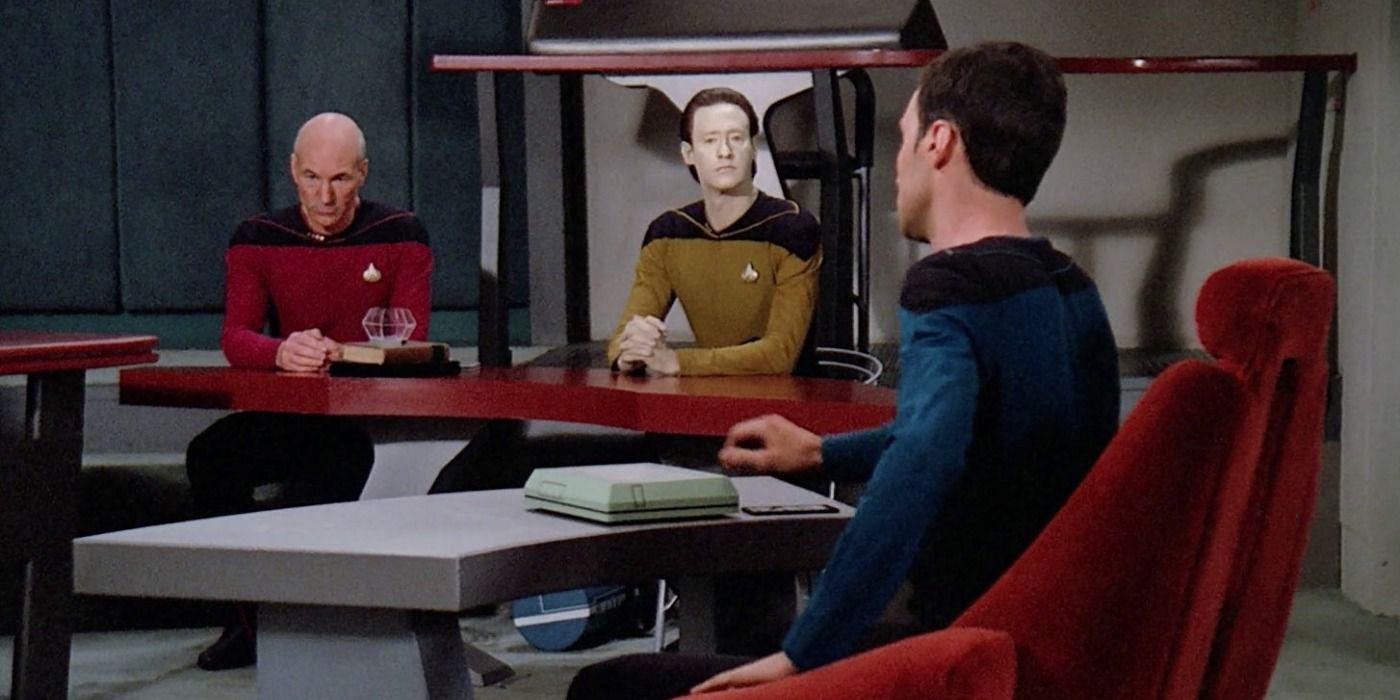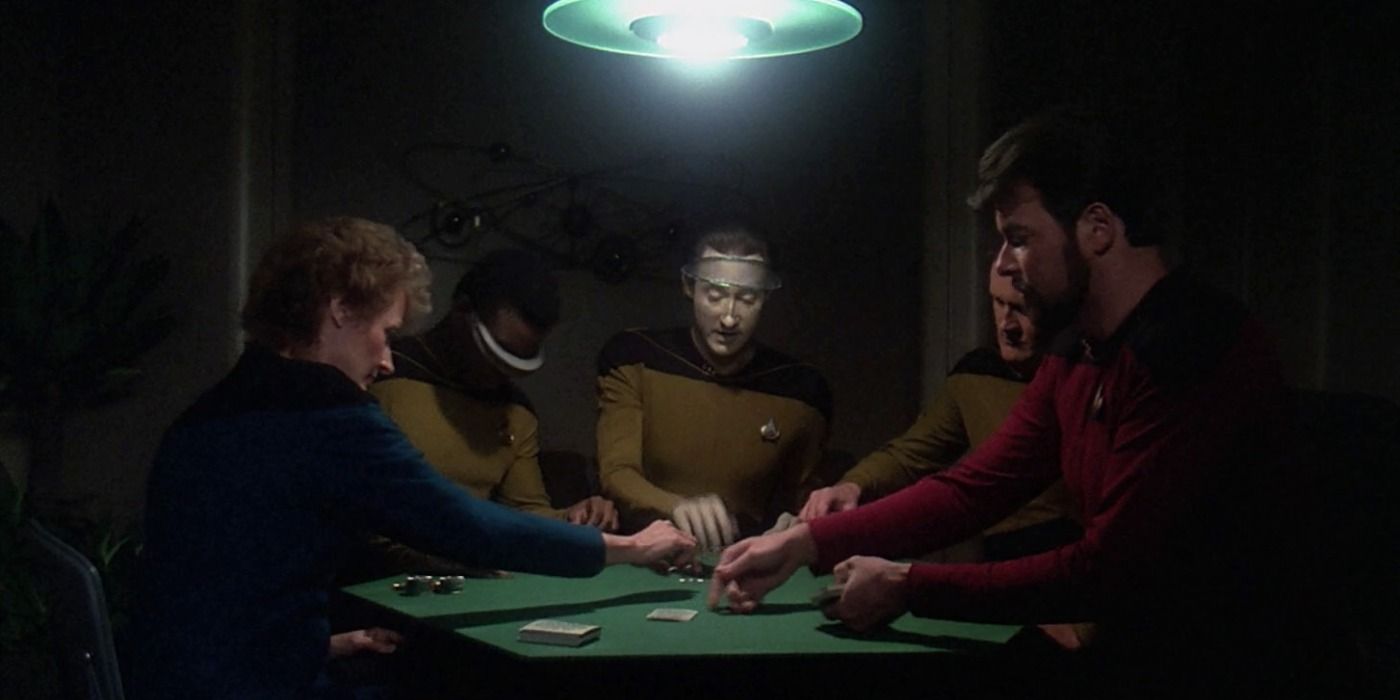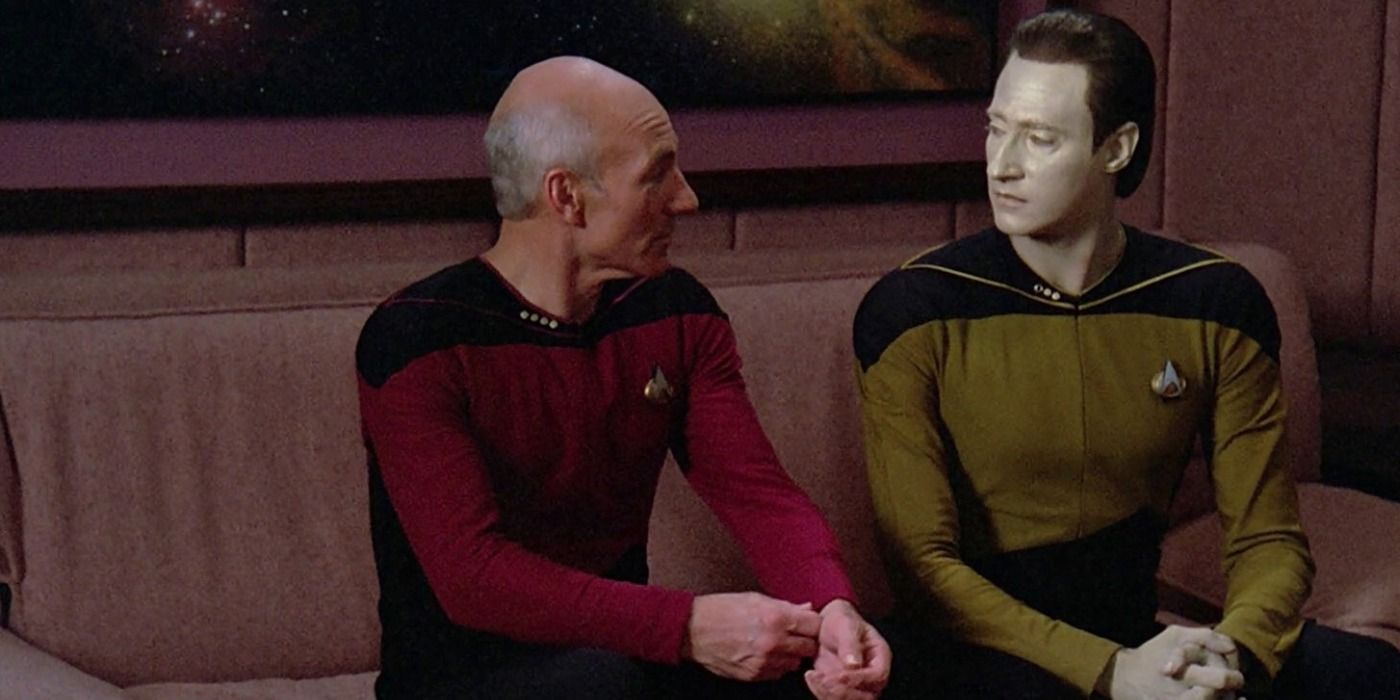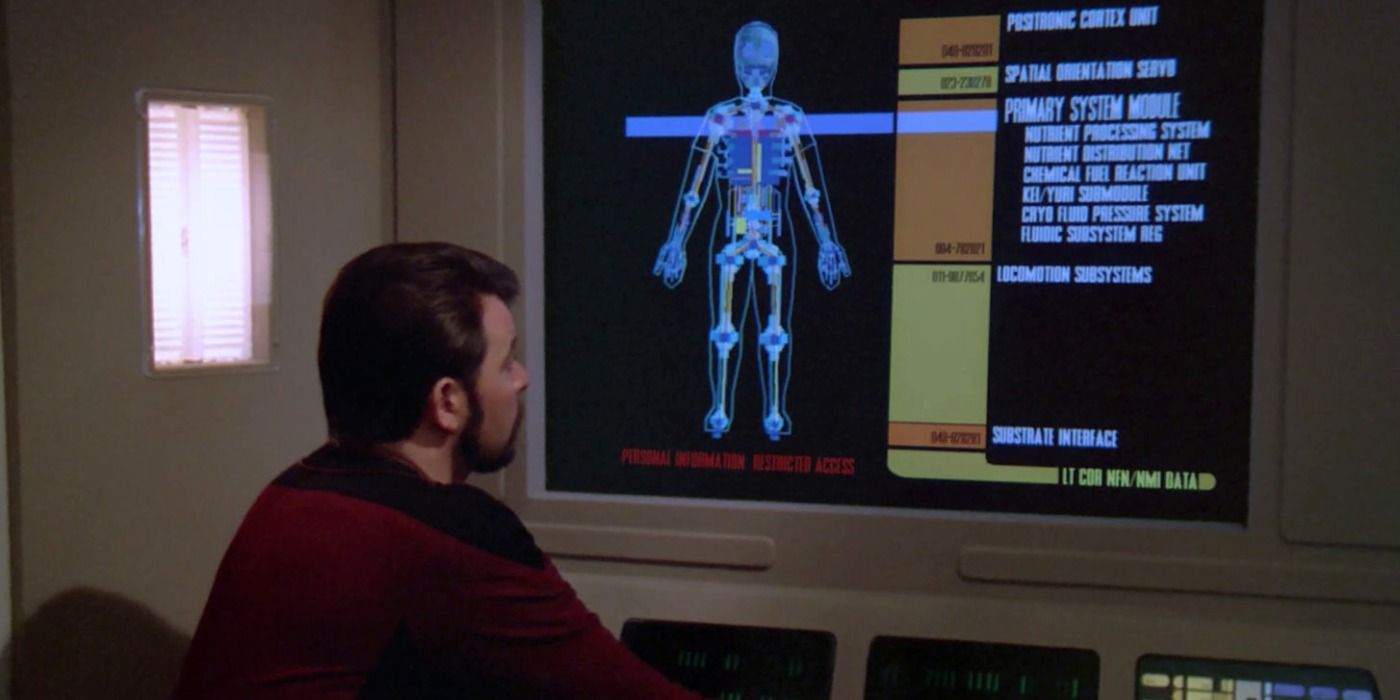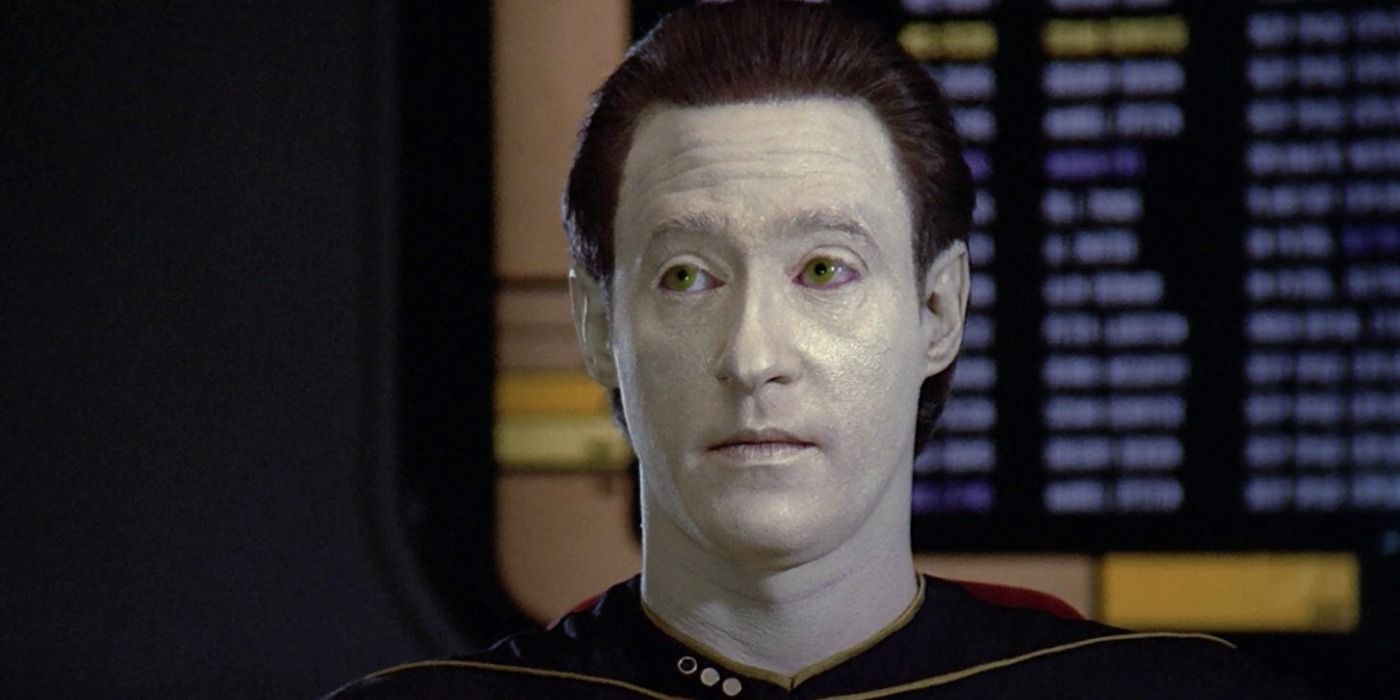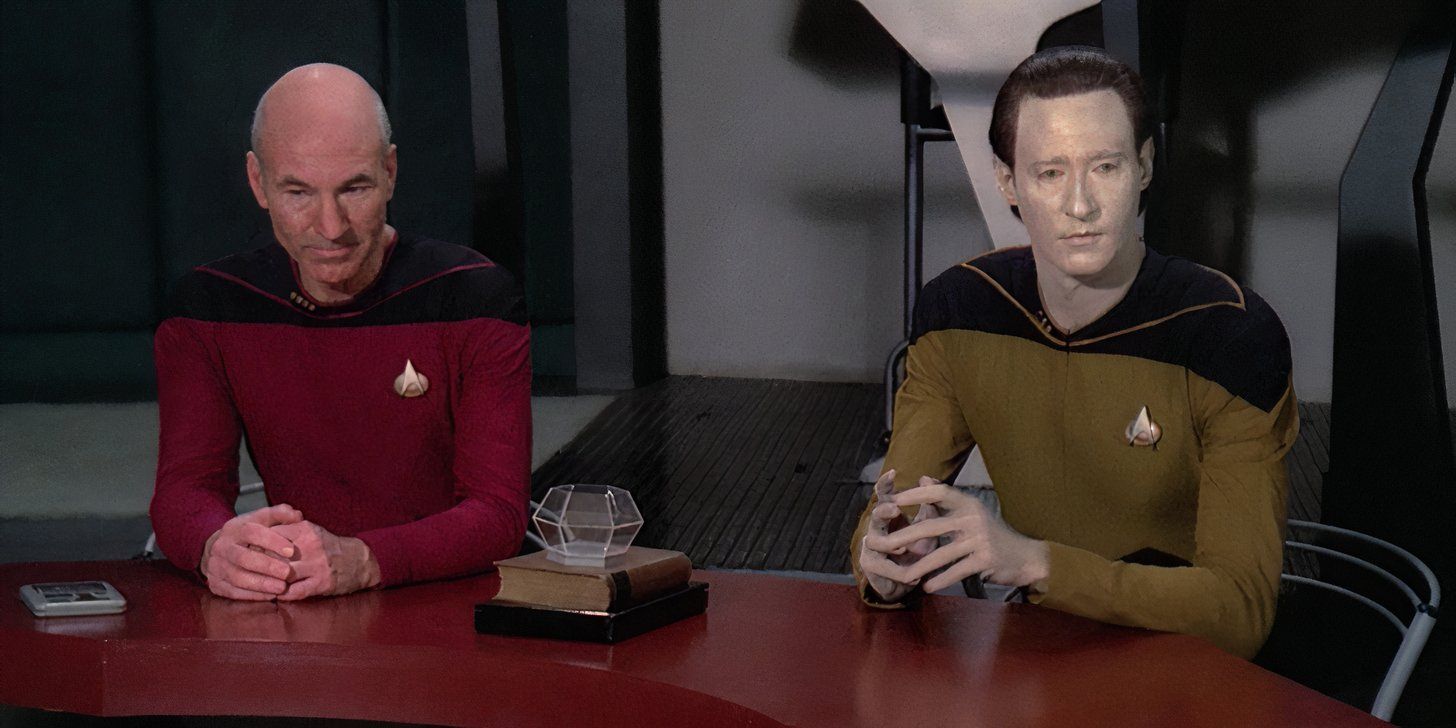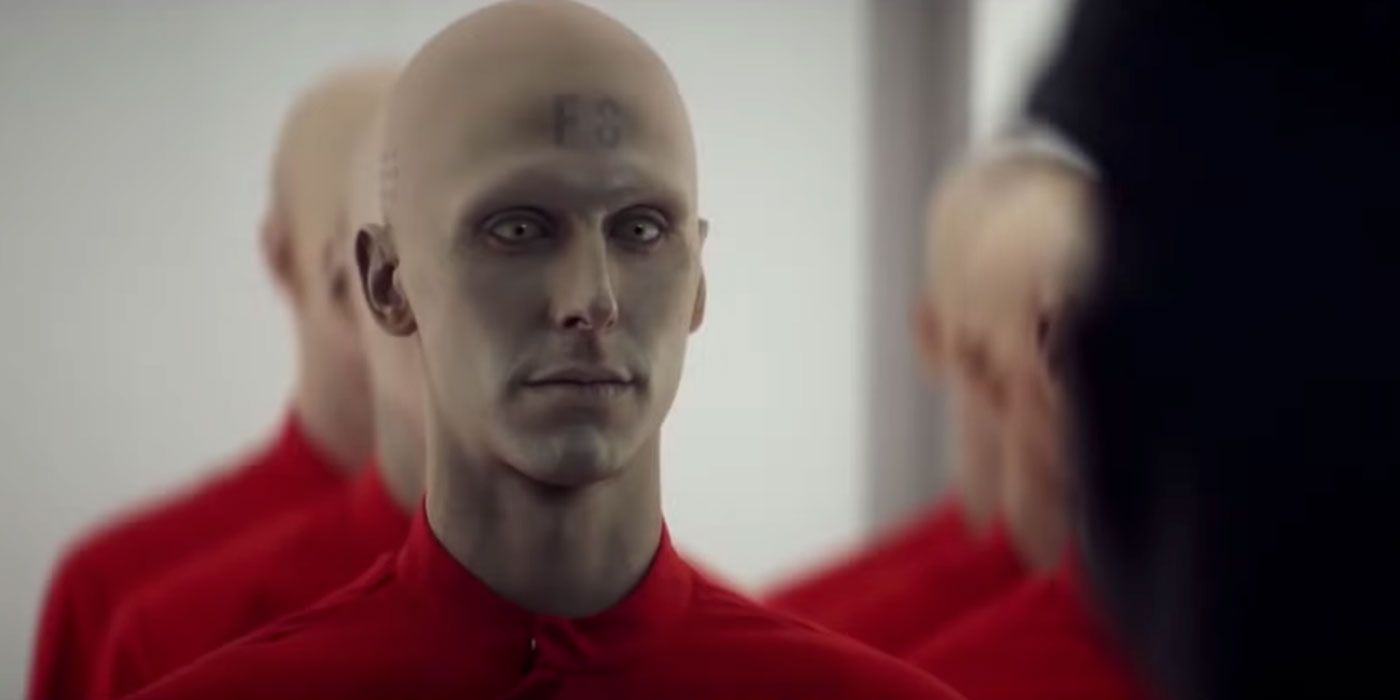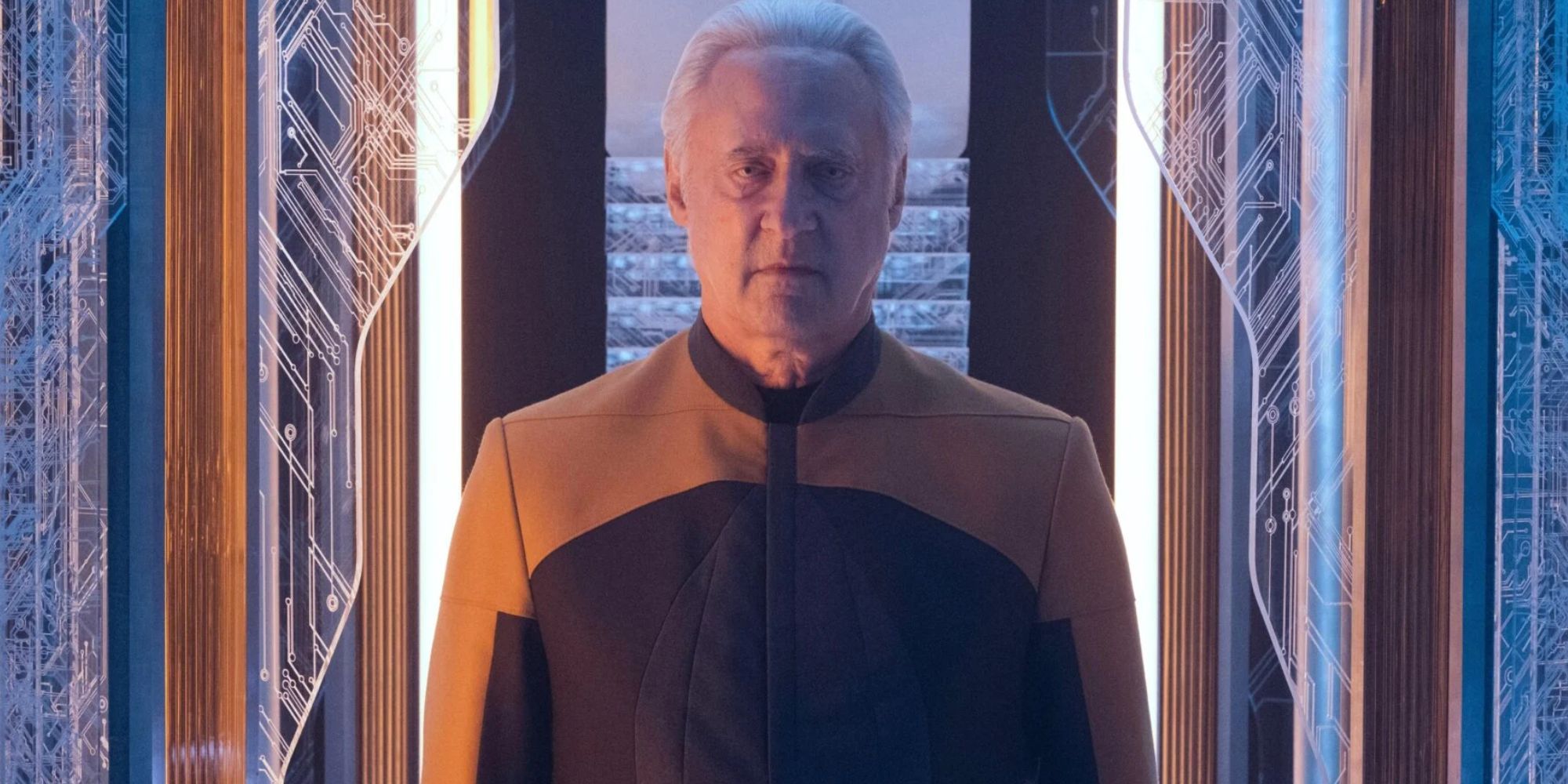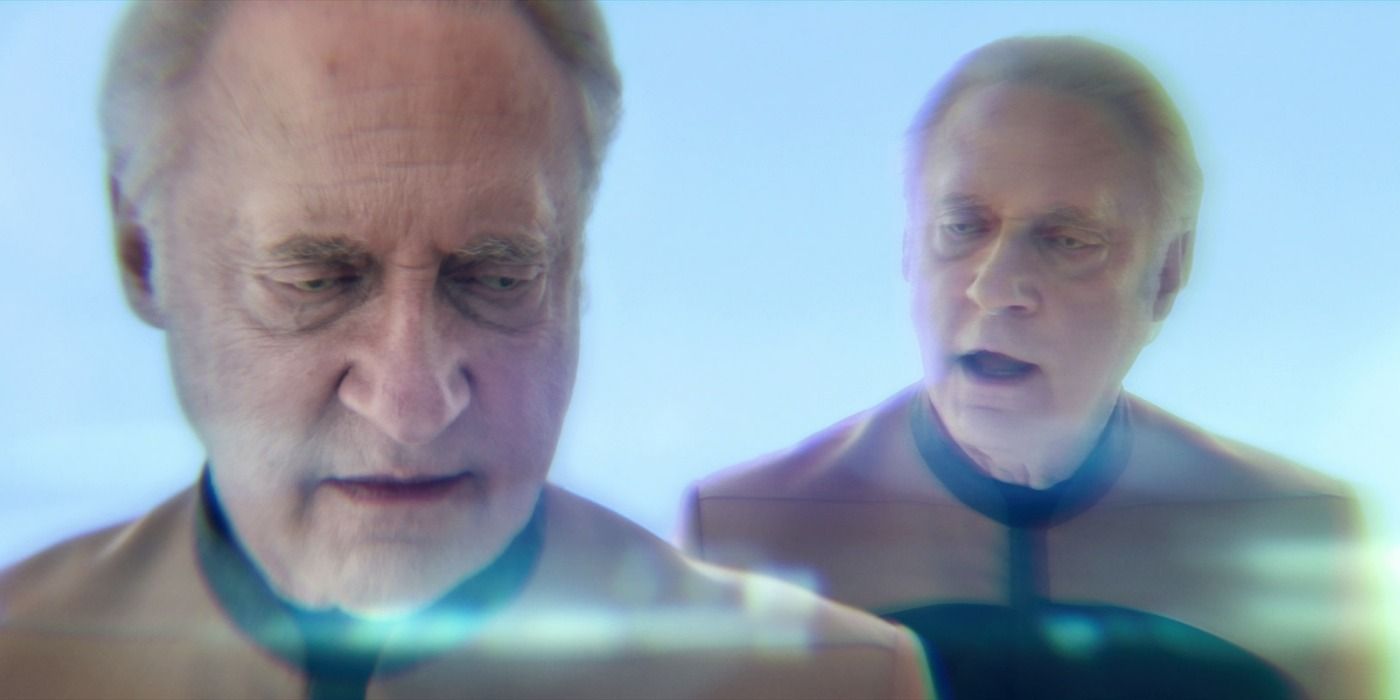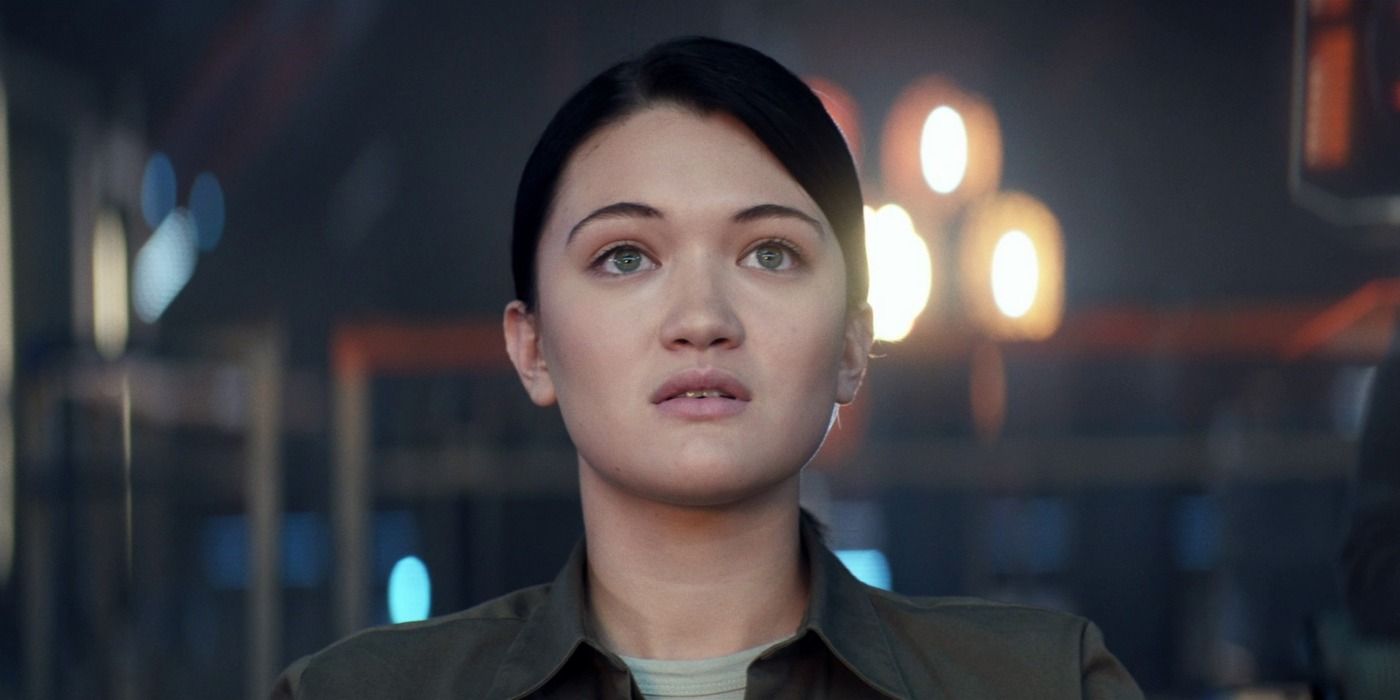While in 1930s New York, Kirk falls in love with soup kitchen operator Edith Keeler, only to learn that she must die to restore the correct timeline and save the future. It's Kirk's most beautiful and tragic love story, but it's not the most quintessentially Star Trek episode of the franchise. Star Trek: The Original Series had other episodes that dealt more directly with social commentary or more unique science fiction concepts. While "The City on the Edge of Forever" certainly has something special, other, later Star Trek episodes have a more profound impact on the franchise as a whole.
Why TNG's "The Measure Of A Man" Is Better Star Trek Than "The City On The Edge Of Forever"
"The Measure Of A Man" Tackles Bigger Issues & Questions Than "The City On The Edge Of Forever"
Star Trek: The Next Generation followed in the footsteps of TOS, introducing the world to Captain Jean-Luc Picard (Patrick Stewart) and continuing the franchise's trend of delivering compelling and relevant science fiction stories. Some TNG episodes, like this season 2 classic, transcended Star Trek to address something bigger. The best Star Trek episodes wrestle with impossible questions like what it means to be human, and TNG's "The Measure of a Man" may be the best example of this.
Cyberneticist Dr. Bruce Maddox (Brian Brophy) wants to dismantle Data for further study, and he argues that the android belongs to Starfleet. Data, of course, protests, as does Captain Picard, who risks his own career to stand up for his friend and crew member. Data eventually resigns himself to his fate and begins packing up his things, but Picard calls for a formal hearing, leading to one of the best court scenes in Star Trek history. Commander William Riker (Jonathan Frakes) must argue against Data, despite his personal feelings on the matter, and his argument shakes even Picard's resolve.
"The Measure of a Man" is also a great episode for Riker, as he struggles with his role in Data's trial. In the end, Data recognizes that Riker's actions helped save the android's life, even as they pained Riker personally.
"The Measure of A Man" Is Star Trek Social Commentary At Its Absolute Best
"The Measure of A Man" Highlights The Importance Of Empathy & Tackles Life's Big Questions
In many ways, "The Measure of a Man" is just as emotional as "The City on the Edge of Forever," particularly for Star Trek fans who have formed an attachment to Data. It hurts when Maddox refers to Data as an "it," but it's lovely to see how much his friends care about him. The episode goes beyond our emotional connections to its characters, though, tackling issues of sentience, artificial intelligence, and scientific advancement. Maddox truly believes he can improve lives by dismantling Data, but he doesn't see Data as a person.
Data's Star Trek Trial Continues To Affect Star Trek, While Kirk's Greatest Love Story Does Not
Star Trek On Paramount+ Continues To Grapple With Issues Of AI & Sentience
While "The City on the Edge of Forever" profoundly affected Captain Kirk, the events of that episode did not reverberate throughout the Star Trek universe like Data's trial in "The Measure of a Man." Captain Louvois' ruling that Data has the right to choose continues to affect the Star Trek of the Paramount+ era, particularly in Star Trek: Picard. At some point, Starfleet seems to have forgotten about their promise to Data, and they developed a race of non-sentient androids for use as manual labor. This backfired spectacularly, as the Romulan Zhat Vash eventually turned these synths against Mars in a devastating attack.
In the wake of the Mars attack, the United Federation of Planets banned all synthetic life, regardless of whether these beings were sentient or not. This did not stop cyberneticists like Bruce Maddox (John Ales) and Altan Soong (Brent Spiner) from continuing their research, which eventually led to the creation of Dahj and Soji Asha (Isa Briones). After the events of Picard season 1, Soji embarked on a diplomatic mission to educate people about synthetic life.
Star Trek: The Next Generation's "The Measure of a Man" truly wrestles with the question of what it means to be human in a profound and poignant way.
